Meeting La Binoche, a cinematic force of nature
Beautiful, outspoken and fearlessly independent, Juliette Binoche is one of the world’s most admired actresses.
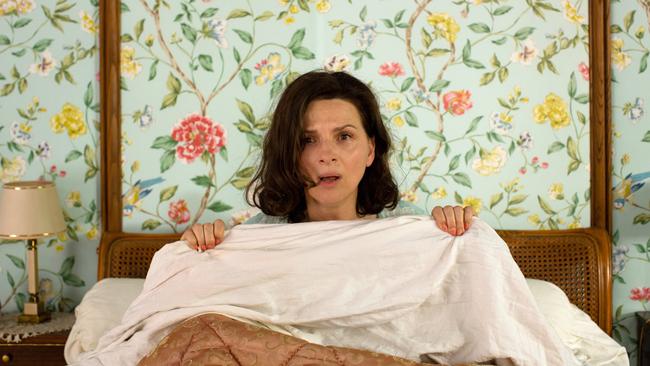
In France, Juliette Binoche is known as La Binoche — a sign of her iconic stature and singular identity. Beautiful and at times fearlessly outspoken, her fame crosses both the French and English-speaking worlds, especially from her award-winning roles in films The English Patient and Chocolat. She is, above all, a force to be reckoned with — and younger actresses such as Marion Cotillard and Audrey Tautou have taken note.
I spoke to Binoche at the Zurich Film Festival in October where she was to receive the Golden Icon Award for lifetime achievement. She didn’t hesitate to come to the Swiss festival, even while COVID-19 was raging in Europe.
“It would be odd to say no,” the stunning 56-year-old admits with a smile. “I remember Abbas Kiarostami asked me how many awards I had,” she notes, recalling her 2010 Cannes best actress win for the Iranian director’s Certified Copy. “I told him I didn’t know. Maybe 15? And he said he had something like 80. I went down into his basement and saw all the awards. I thought, why does he need all those awards? What is it for? I reckon it was because he was travelling the world and was able to go to some places I’d only ever imagined.”
Binoche is a hard worker and is constantly making movies, performing in the theatre and even dancing on stage and screen. It seems she hasn’t stopped since she burst onto the international scene with Philip Kaufman’s The Unbearable Lightness of Being, Leos Carax’s The Lovers on the Bridge, Louis Malle’s Damage and Krzysztof Kieslowski’s Three Colours Blue.
Last year, though, after completing The Truth (incredibly, her first movie with Catherine Deneuve, another French icon who moves effortlessly between big budget and smaller productions) and Martin Provost’s feminist comedy, How to Be a Good Wife, she gave herself a break.
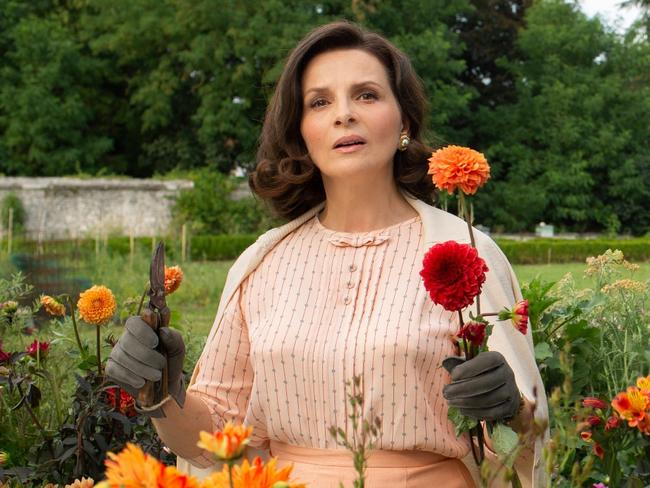
“My doctor said to me, ‘You’ve got to take care of yourself, you’ve got to be cautious.’ So I thought about it and I stopped for a while,” she explains. “I was going to do this American film, Paradise Highway, and when it was postponed because of COVID, I had more time and, health-wise, it was the best for me.”
What did she do? “I had time to read and to cook with my kids and for my kids and I took care of my mother. Actually, it made me closer to her, because nobody could help her but me. My sister was very afraid, so she wouldn’t go. So I had to go and my children helped too. It was a time of being cautious, of course, but also of having a commitment.”
Over the years, Binoche has brought a huge level of advocacy and commitment to many issues. Usually she prefers to make a stand via her movies, as was the case with 2005’s Hidden, when in interviews she discussed the impoverished situation of Algerians living in Paris.
She made a more overt public statement in 2010, when the Iranian regime imprisoned director Jafar Panahi, who was due to be in Cannes as a juror at the film festival. In her best actress acceptance speech, Binoche held up a “Jafar Panahi” sign for all the world to see, noting: “His fault is to be an artist, to be independent.” Her protest, supported by the likes of Steven Spielberg, was influential in gaining Panahi’s release.
There’s no stopping her. During the pandemic in Paris, where restrictions have been among the toughest in the world, she has been collaborating with investigative journalist Marie-Monique Robin on a documentary about climate change.
“I’d been wanting to speak out about what’s happening now,” she says. “It’s about the disequilibrium of biodiversity, cutting down trees to plant palm trees and the agricultural industry during the pandemic. Marie-Monique has been interviewing scientists all over the world and the idea is that I’ll be following some of it and working with her on it.
“I think we’re in a time of transition — and it’s rough. And it’s going to get rougher, especially for the poorest. I think we should all be responsible and not only think of our little lives, but be more thinking about what’s happening on the other side of the planet. There’s an urgency to change our habits, not only in the way we act, but also in the way we think.”
After Zurich, Binoche was set to reunite with Claire Denis — her director on High Life and Let the Sunshine In — for Radioscopie, co-starring Vincent Lindon and set in the world of a French radio cultural program that was first broadcast in 1968. “Claire’s crazy, I love her,” she says.
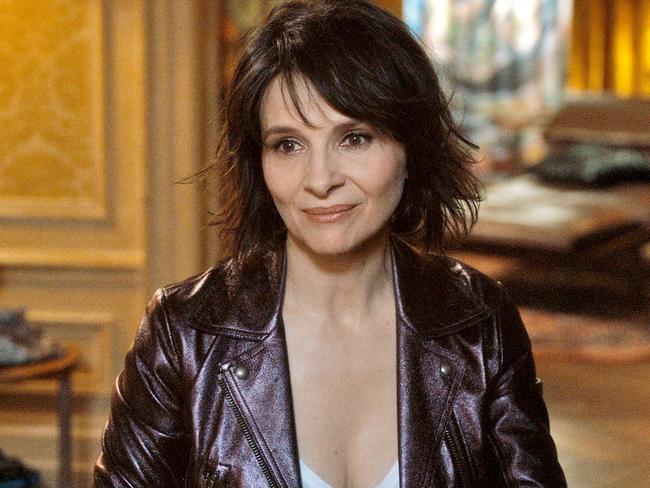
Meanwhile, Paradise Highway, the first feature by Anna Gutto, should go ahead next year. Binoche has the unlikely role of a truck driver in a film that addresses serious issues.
“The film speaks of children who are stolen and sold into prostitution, which happens to around 100,000 children in the US each year,” she says. “I’m a truck driver transporting the children.
“I was driving for more than a week before the lockdown and was on the road with a truck driver, sleeping in the truck and experiencing what it’s like. So because it’s postponed I probably have to do it again next year.”
Did she enjoy the experience of truck driving?
“Yeah, actually, I’m pretty good at this!” she chirps. “There are around 13 gears.”
Over the years, Binoche has become more garrulous. Early in her career she shunned attention, especially when it came to her personal life, and she remains circumspect. She’s had high-profile relationships — with Daniel Day-Lewis, her co-star in The Unbearable Lightness of Being, and most notably with Carax. When she was filming The Lovers on the Bridge with Carax, he forced her into some difficult circumstances, and at one point she came close to drowning in the Seine.
She had her first child, Raphael, now 27, with scuba diver Andre Halle whom she met on The Lovers on the Bridge. She also has a daughter, Hannah, 21, with Benoit Magimel, her co-star on The Children of the Century who was 10 years her junior. She was engaged for two years to Argentinian director Santiago Amigorena, her director on A Few Days in September, and most recently has rekindled an old romance with American actor and musician Patrick Muldoon.
When discussing How to Be a Good Wife in Zurich, she doesn’t really answer the question as to why she has never married. “Yeah, I’ve never gotten married. What is it to be a good wife? Hmm,” she says.
While she has told me in the past that being unmarried is a sign of her independence, she once recalled on television how the divorce of her drama teacher mother, Monique Stalens, and theatre director father, Jean-Marie Binoche, had been hugely upsetting.
After the divorce she went to live with her aunt and was placed in a boarding school; she did not live again with her mother and sister until she was seven. This family separation led to a feeling of abandonment, which continues to this day and influences her in leaving the men she loves for fear of suffering again. “I can’t stand to feel abandoned so I always left before I was in too much pain,” she has said.
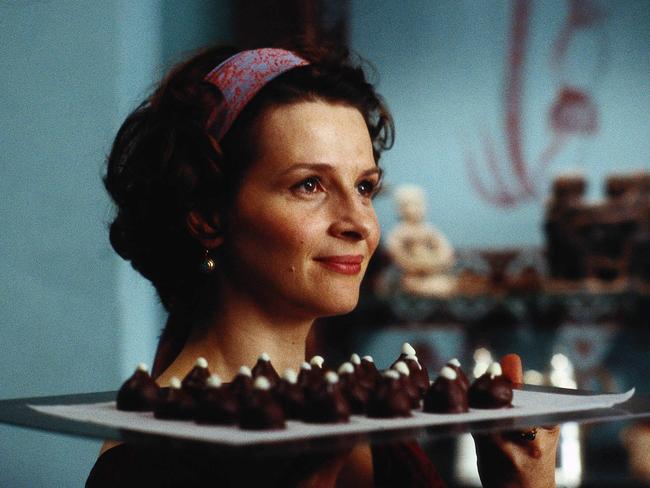
In How to Be a Good Wife Binoche plays a woman who, with her husband, runs a finishing school for young women in the late 1960s. When her husband dies she experiences a kind of liberation, as do the young women in her charge.
“The film deals with the female liberation from attitudes that were instilled after the Second World War,” Binoche says. “This idea of perfection was applied to women, which of course is stupid. We need to be real; we don’t need to be perfect. What is perfection after all? When these schools started they were probably the idea of the Catholic system. Mostly men did that because they were scared of women and put them in a situation and clothes so they could hardly move.”
Binoche had watched the struggles of her mother and maternal grandmother, a Holocaust survivor who also divorced after moving to France from Poland. “My grandmother needed a job and became a dressmaker and my mother saw her having a very difficult life. My mother wanted to be independent … and she educated me to be independent.”
Binoche certainly has found it in her wide range of roles. Still, we’d probably like to see more of her in high-profile, English-language films. In recent years she’s had raunchy parts alongside Robert Pattinson in High Life and Cosmopolis, and she co-starred with Kristen Stewart in Clouds of Sils Maria. In Australian director Fred Schepisi’s touching romance Words and Pictures she played a painter with rheumatoid arthritis and Binoche, a painter herself, did all of her character’s paintings.
Earlier in her career she shunned Hollywood, turning down Jurassic Park, the third Indiana Jones film and Schindler’s List — Spielberg is clearly a fan — as well as Mission Impossible. (She did play a supporting role in 2014’s Godzilla, at the behest of her son.) She turned away from mainstream productions when she made 1992’s Damage and decried the experience of making love on screen with a wooden Jeremy Irons. She vowed never again to make a film with so little to say.
“I choose stories that need to be told,” she insists. “My dream was always to work with great directors, not to make a living as an actress in Hollywood or to become rich or more famous. By working with artists I am able to explore and risk things.”
In our numerous interviews over the years — our first was for Michael Haneke’s 2000 movie Unknown Code, about the plight of immigrants and minorities in Paris — she has always been feisty and opinionated.
“I have a lot of fire in me I think,” she says. “In Chinese astrology I have a lot of fire. When I saw my chart I was like, oops! That explains it! People are born like this and there is nothing you can do about it.”
One of her greatest assets is that she doesn’t take herself too seriously. When I interviewed her in Paris in early January, I suggested, given the many times we have met, that I could write her biography. “Others have written them but I haven’t read them,” she scoffed. Why hasn’t she written one herself? Hasn’t she experienced enough in her life?
“I don’t know — there would be big lies,” she says with a chuckle, “like Catherine Deneuve complains about in The Truth,” referring to the film in which Binoche’s character writes a biography about her famous actress mother.
My favourite Binoche moment on screen is when she hilariously parodies herself in the hit French comedy series Call My Agent! (available on Netflix). The episode, simply called Juliette, has her sending herself up as the Cannes festival’s mistress of ceremonies, arriving on stage bedraggled in a torn white gown and afterwards scoffing pizza while lying on a bed alongside her bodyguard. A woman of the people, that’s how she’s happily viewed.
“It was so much fun,” she says.
To which I can only reply, Vive La Binoche!
How to Be a Good Wife opens in Australia on December 26.

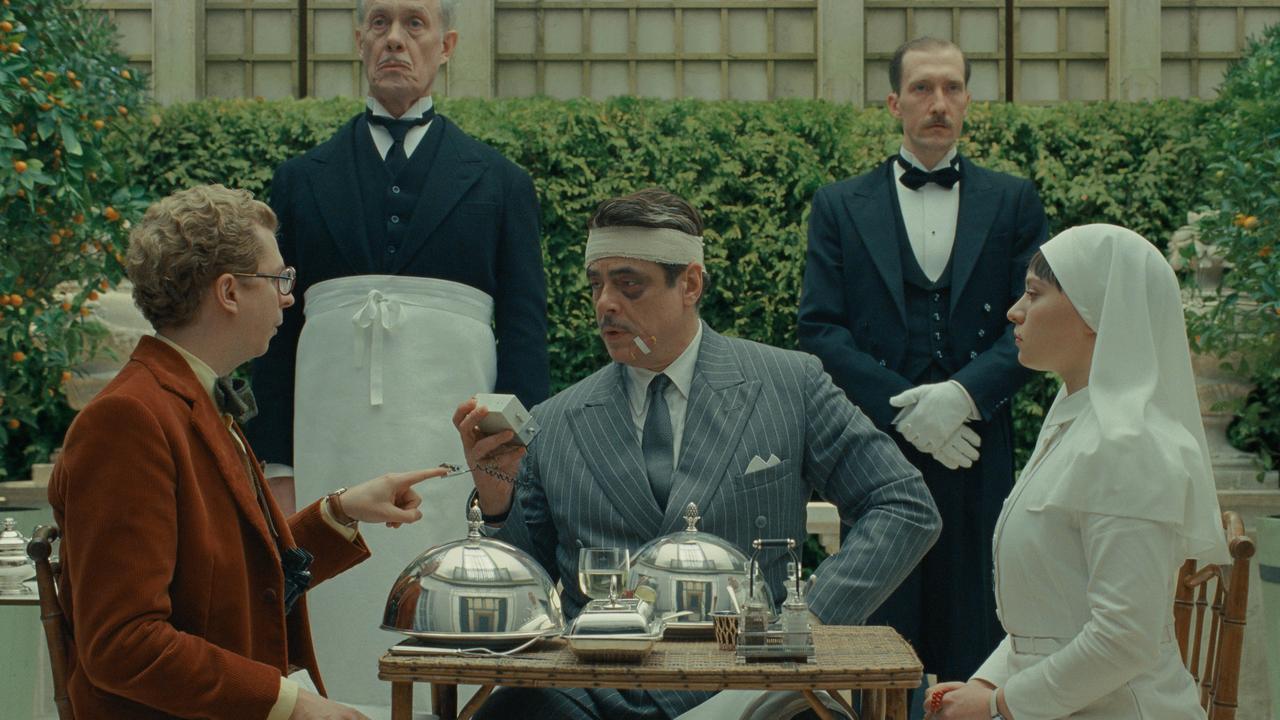

To join the conversation, please log in. Don't have an account? Register
Join the conversation, you are commenting as Logout